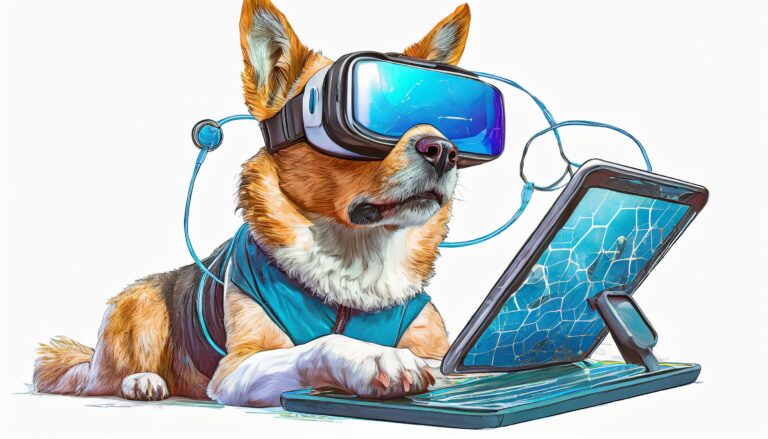Guide to Hiring Veterinary Staff in 2024
The demand for veterinary professionals is undergoing unprecedented growth, as projected by the U.S. Bureau of Labor Statistics. Between 2022 and 2032, employment opportunities for veterinarians and veterinary technicians are expected to surge by 20% and 21%, respectively. This staggering increase underscores the pressing challenges faced by veterinary recruiters and clinic owners in sourcing and retaining qualified staff. As the veterinary industry experiences rapid expansion, traditional hiring methods may prove insufficient to meet the rising demand for skilled professionals. Consequently, there is an urgent need for adaptive hiring strategies that can effectively attract and retain top talent in this competitive landscape. In light of these projections, veterinary recruiters and clinic owners must adopt innovative approaches to recruitment and talent management to ensure the continued success and growth of their practices.
Leveraging Technology for Recruitment
In the veterinary industry, where the demand for skilled professionals is rapidly outpacing supply, leveraging technology in the recruitment process is no longer just an option but a necessity. According to recent statistics from the American Veterinary Medical Association (AVMA), the number of job openings for veterinarians and veterinary technicians has increased by 15% annually over the past five years, indicating a pressing need for efficient hiring strategies. Embracing tech-driven recruitment not only helps veterinary practices stay competitive but also attracts the attention of modern job seekers who are accustomed to seamless digital experiences. Studies show that 73% of job seekers use mobile devices to search for jobs, underlining the importance of adopting mobile-friendly hiring platforms and communication channels.
Modern hiring tools, particularly those powered by artificial intelligence (AI), offer unprecedented simplicity and efficiency in the recruitment process. Research from LinkedIn reveals that AI-driven recruitment tools can reduce the time it takes to screen candidates by up to 75%, enabling veterinary recruiters to focus their efforts on engaging with top-tier candidates. By automating mundane tasks such as applicant screening and resume review, AI not only saves time but also ensures a more objective evaluation process, reducing the risk of unconscious bias in hiring decisions. Furthermore, AI algorithms can analyze vast amounts of candidate data to identify patterns and preferences, enabling recruiters to tailor their approach and target the most suitable candidates effectively.
One of the key benefits of leveraging technology in recruitment is its ability to streamline the candidate experience, from initial application to onboarding. According to a survey by Glassdoor, 82% of job seekers believe that a positive candidate experience is essential when considering job offers. By implementing user-friendly application portals and communication platforms, veterinary practices can enhance the applicant experience, making it easier for candidates to apply for positions and stay informed about their application status. Moreover, technology-enabled communication channels such as video conferencing and chatbots facilitate seamless interactions between recruiters and candidates, eliminating geographical barriers and expediting the hiring process. In an increasingly competitive job market, providing a tech-savvy and engaging candidate experience can significantly improve a veterinary practice’s ability to attract and retain top talent.

Enhancing Applicant Experience through Digital Communication
In today’s competitive job market, providing a personalized and engaging applicant experience is crucial for veterinary recruiters and clinic owners to attract and retain top talent. According to a survey by CareerBuilder, 82% of candidates believe that a personalized approach to recruitment would make them more likely to consider the position. This underscores the importance of tailoring communication to individual candidates’ preferences and needs. By leveraging technology, such as AI-driven email, direct messages, or texts, recruiters can create personalized interactions that resonate with candidates on a deeper level. For example, AI algorithms can analyze candidate data to craft customized messages that address specific skills or experiences, increasing the likelihood of engagement and interest in the position.
Moreover, incorporating video conferencing and virtual tours into the recruitment process can significantly enhance the applicant experience. Research by Glassdoor reveals that 67% of job seekers consider the diversity of workplace culture an essential factor when evaluating job offers. Virtual interviews and tours allow candidates to get a firsthand look at the veterinary practice’s facilities, team dynamics, and overall culture, helping them determine if it aligns with their values and career aspirations. Additionally, virtual interviews save time and resources for both candidates and recruiters, eliminating the need for travel and scheduling conflicts. This streamlined approach demonstrates a commitment to modern recruitment practices and signals to candidates that the practice values their time and convenience.
Furthermore, virtual onboarding procedures, including pre-clinic orientations and training sessions, can set the stage for a positive employee experience from the outset. According to a survey by SHRM, effective onboarding programs can improve employee retention by 82% and productivity by over 70%. By utilizing technology for pre-clinic onboarding, such as interactive modules or virtual mentorship programs, veterinary practices can ensure that new hires feel supported and prepared for their roles. This proactive approach not only fosters a sense of belonging and engagement among new employees but also contributes to long-term retention and organizational success. Overall, prioritizing personalized communication and digital engagement throughout the recruitment process is essential for veterinary practices to attract and retain top talent in 2024 and beyond.

Social Media as a Recruitment Channel
In the digital age, maintaining a robust online presence has become imperative for veterinary practices seeking to attract top talent. Social media platforms such as Facebook, Instagram, and LinkedIn offer powerful tools for talent acquisition, providing recruiters and clinic owners with unprecedented reach and engagement opportunities. According to recent studies, over 79% of job seekers use social media in their job search process, indicating the immense potential of these platforms for recruiting veterinary staff. By leveraging social media channels effectively, veterinary practices can showcase their unique culture, values, and commitment to animal care, thereby attracting candidates who resonate with their mission.
Furthermore, social media allows veterinary practices to amplify their brand identity and establish themselves as industry leaders. Research shows that 72% of candidates will research a company’s reputation before applying for a job, with social media being a primary source of information. By regularly posting engaging content, sharing success stories, and highlighting employee achievements, veterinary practices can cultivate a positive brand image that appeals to potential candidates. Moreover, platforms like LinkedIn offer targeted advertising options that enable recruiters to reach candidates with specific skill sets and experience levels, increasing the likelihood of finding the right fit for available positions.
One of the most compelling aspects of utilizing social media for talent acquisition is the ability to showcase positive client reviews and testimonials. Studies have found that 92% of consumers trust recommendations from friends and family over any other form of advertising, highlighting the importance of social proof in attracting candidates. By featuring glowing testimonials from satisfied clients and highlighting the impact of veterinary care on animals and their owners, practices can instill confidence in prospective employees about the quality of care and the supportive work environment they can expect. Additionally, sharing behind-the-scenes glimpses of daily operations, team outings, and community engagement efforts humanizes the practice and fosters a sense of connection with potential candidates, ultimately increasing the likelihood of successful recruitment.
Prioritizing Diversity, Equity, Inclusion, and Belonging (DEIB)
Fostering inclusive recruitment practices is not just a moral imperative but also a strategic advantage for veterinary clinics aiming to thrive in a competitive landscape. Research consistently demonstrates that diverse teams drive innovation and creativity, ultimately leading to better business outcomes. According to a study by McKinsey & Company, companies with diverse executive teams are 33% more likely to outperform their less diverse counterparts in terms of profitability. This underscores the tangible benefits of embracing diversity, equity, inclusion, and belonging (DEIB) in veterinary recruitment strategies.
Aligning DEIB values with the actual culture of veterinary practices is crucial for attracting and retaining diverse talent. While many clinics may espouse DEIB principles in their recruitment materials, it’s the lived experience of employees that truly reflects the practice’s commitment to these values. A survey conducted by Glassdoor found that 67% of job seekers consider workplace diversity an important factor when evaluating job offers. Therefore, it’s essential for veterinary clinics to not only articulate their DEIB values but also demonstrate tangible actions and initiatives that promote inclusivity and belonging within the workplace.
Moreover, DEIB isn’t just about attracting diverse talent; it’s also about building a resilient and vibrant veterinary team that can effectively serve a diverse clientele. Research from Deloitte reveals that diverse teams are better equipped to understand and meet the needs of a diverse customer base. In the context of veterinary medicine, where clients come from various cultural backgrounds and communities, having a diverse team that reflects the demographics of the clientele can enhance communication, trust, and overall client satisfaction. Therefore, prioritizing DEIB in recruitment practices isn’t just about ticking boxes—it’s about building stronger, more inclusive veterinary teams that can deliver exceptional care to all patients.

Legal Implications of Hiring Technology
Navigating the legal landscape surrounding hiring technology is paramount for veterinary recruiters and clinic owners in 2024. With the proliferation of digital tools and AI-driven solutions in the recruitment process, it’s crucial to understand and address the legal, ethical, and data security implications. According to recent research from Deloitte, 67% of HR professionals cite data privacy and security as their top concern when implementing AI in hiring. This concern stems from the potential risks associated with data breaches and non-compliance with regulations like the General Data Protection Regulation (GDPR) and the Health Insurance Portability and Accountability Act (HIPAA) in the context of healthcare recruitment.
Ensuring compliance with federal and state employment laws is a foundational aspect of utilizing digital hiring tools effectively. A survey conducted by the Society for Human Resource Management (SHRM) found that 82% of HR professionals consider legal compliance to be a critical factor when adopting new recruitment technologies. Veterinary recruiters must be mindful of laws governing equal employment opportunity, non-discrimination, and fair hiring practices to avoid legal pitfalls. For instance, AI-powered hiring tools must be programmed to eliminate biases and ensure equitable treatment of all candidates, as mandated by laws such as the Civil Rights Act of 1964 and the Americans with Disabilities Act (ADA).
Responsible navigation of hiring technology involves implementing robust protocols for data security and privacy protection. According to a study by Gartner, by 2023, 30% of all organizations will use AI to screen job applicants, posing significant challenges for data governance and compliance. Veterinary recruiters must adopt measures such as anonymizing applicant data, implementing encryption protocols, and conducting regular audits to safeguard sensitive information. Additionally, establishing clear policies regarding data retention and deletion is essential to mitigate the risk of regulatory penalties and reputational damage. By prioritizing legal compliance and data security in the use of hiring technology, veterinary recruiters can uphold ethical standards and ensure a fair and transparent recruitment process for all candidates.

Conclusion
In conclusion, the veterinary industry’s exponential growth, as projected by the U.S. Bureau of Labor Statistics with a 20% increase in veterinarian employment and a 21% rise in veterinary technician positions by 2032, underscores the urgent need for innovative recruitment strategies. In this dynamic landscape, embracing technology emerges as a critical factor, with the adoption of AI-driven hiring tools and digital communication channels leading to significant efficiency gains. Moreover, statistics from the ASPCA indicating that 69% of pet owners express interest in utilizing remote care options highlight the growing importance of prioritizing the applicant experience through personalized communication and virtual engagement methods. As the industry strives for inclusivity and belonging, the benefits of fostering diversity are evident, with diverse teams driving innovation and better problem-solving. However, navigating the legal implications of hiring technology remains paramount, with data privacy concerns and compliance issues necessitating careful consideration. Veterinary recruiters and clinic owners are urged to proactively adapt their recruitment strategies, leveraging technology, prioritizing applicant experience, embracing diversity and inclusion, and maintaining legal compliance to secure top talent and ensure long-term success in 2024 and beyond.
Whether you are hunting for talent/opportunities; feel free to share your company’s portfolio/resume with your expert headhunters: info@pulivarthigroup.com OR to speak to an expert, schedule a no-obligation call below.

